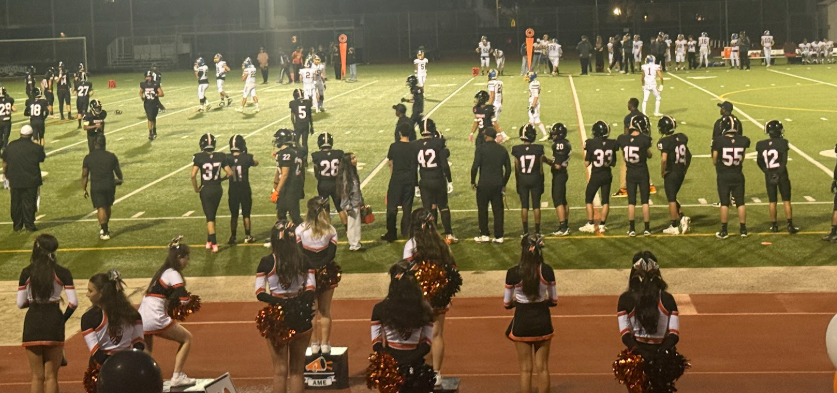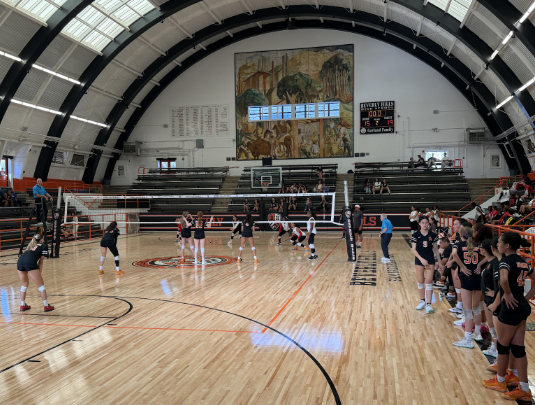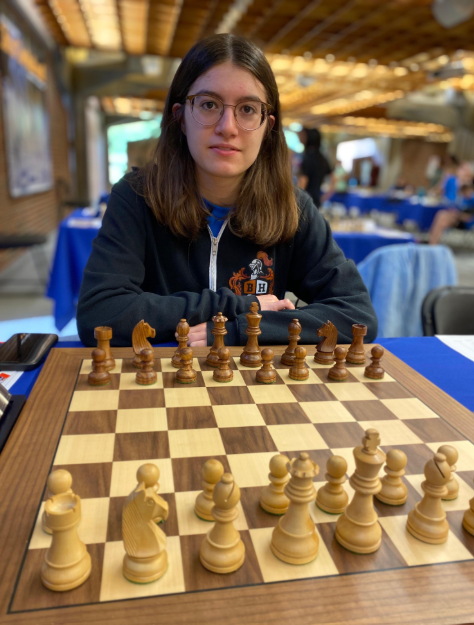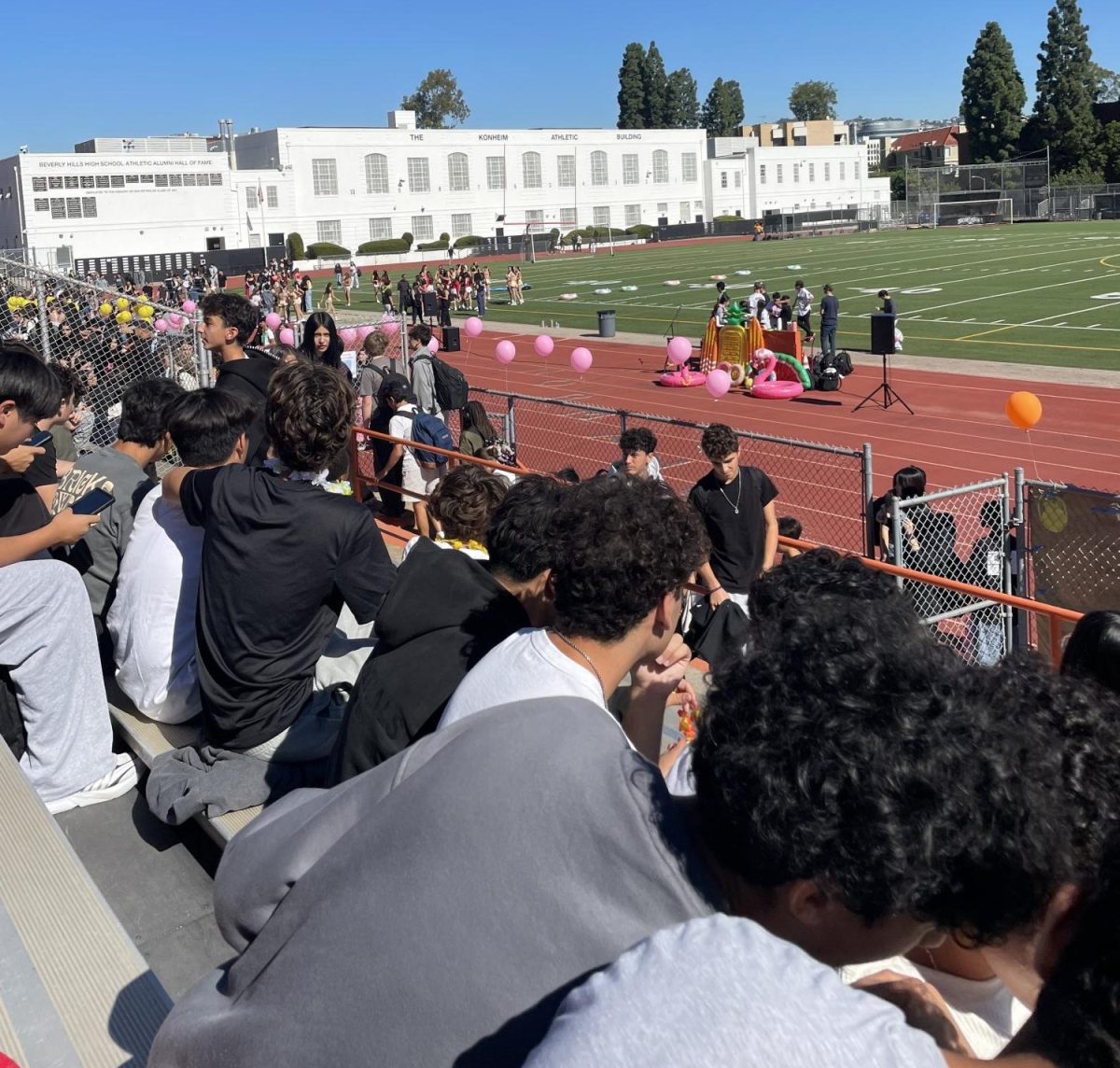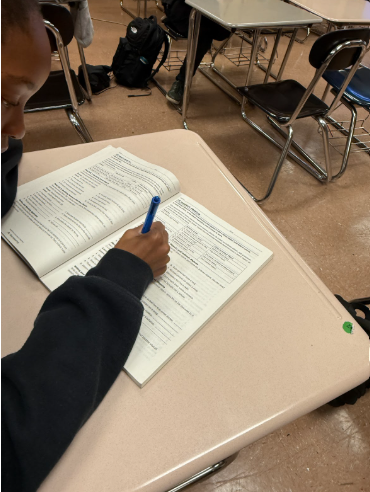As seen in the Dec. 16 print edition
Braden Bochner, staff writer
Audrey Park, staff writer
As of September 2010, Beverly Hills Unified School District (BHUSD) halted the continuation of the Diversity Permit Program, an agreement with the Los Angeles Unified School District (LAUSD), that allowed an allotted number of out-of district ninth graders to attend Beverly.
According to BHUSD Chief Academic Officer Jennifer Tedford, the Board of Education decided to eliminate diversity permits as it was in their “financial interest to serve the city of Beverly Hills and District employees along with residents only.”
“With the exception of the city of Beverly Hills and district employee permits, we no longer accept permits. This means that we only serve our resident students in the district,” Tedford said. “Last November in 2012, the Board directed the district to allow existing permit students to remain.”
Students who had diversity permits at both the middle and high school levels were allowed to remain at their respective schools until graduation. Out of the 178 permit students entering grades 1-12 next year, approximately 34 students will attend with permits other than the interdistrict permit.
The district eliminated permits after the Board of Education switched to basic aid, a funding system that provides a fixed amount of money based on the city of Beverly Hills’ property taxes. Therefore, every extra student brought in via permit equates to less money spent on a non-permit student.
Although the Board eliminated its diversity programs, they decided to continue the Interdistrict Permit Program which allows children of city and district employees to attend the BHUSD schools. Out of the 4,300 students attending BHUSD schools, 220 students are attending with interdistrict permits. Out of the 220 students, 42 are expected to graduate in May of 2014.
“I was going to miss going to high school with my friends from my old school, but I was excited to start a new chapter in my life in a beautiful city,” Klemes said. “I feel that this policy affected my life in a good way because it gave me the opportunity to go to an amazing school.”
Klemes, an active athlete in Beverly’s athletic department, is grateful to have had the opportunity to attend a school that offers as many programs as Beverly does.
“My parents were so happy that my sister and I got the permits,” Klemes said. “Compared to the LAUSD schools that I have attended in the past, Beverly is so much better. It’s much cleaner and the students are much nicer.”
According to BHUSD Chief Administrative Officer Dawnalyn Murakawa-Leopard, because the number of student enrollment has slightly declined, the district had been able to maintain “our programs despite the difficult economic situation that has changed California.”
“We have a responsibility to educate every student who is a resident of Beverly Hills,” Leopard said. “[Having permits means that] we have more students that we have to stretch our dollars to. Therefore, if we have fewer students we have more to spend per pupil.”
Although the elimination of the Diversity Permit Program helped the district schools financially, it also hindered the diversity among the student body.
“I noticed a difference in the dynamic of our student body now without permit kids,” math teacher Daniel Zadeh said. “It’s just not as culturally diverse, which was the nice thing about the permit program. Two-thirds of the students in my A.P. Statistics class used to be students from Palms Middle School.”
Zadeh, who attended Beverly as a student, recalls the competitiveness among students who strived to attend the high school. Students who applied for permits had to have a “certain grade point average from the school they were coming from and had to take several entry exams.”
“One of the two people I was friends with at Beverly who had permits is now the head of cardiothoracic surgery at a local hospital. The other one got a full scholarship for her PhD from Columbia University,” Zadeh said. “That was the caliber of students we were getting at the time. I don’t know if the reputation of our school has changed, but we don’t get as many candidates like that so maybe the district decided it was in their best financial interest to halt the program.”
Zadeh believes that the purpose of a permit program is to “make our student body stronger.” Therefore, if having a permit program helps create a more dynamic student body, then Zadeh is “in support of it.” On the other hand, if the district eliminated permits with the “intent to improve the schools,” Zadeh supports the district’s decision.
“Each student deserves to get the most of what they could get and if having less permits allows the district to spend money on the kids who live in Beverly Hills, then God bless them, I think that’s what we should do,” Zadeh said.
The athletic department has also been impacted by the elimination of permits. Varsity boys football coach Vonzie Paysinger believes that all the sports in the Athletics Department have felt a loss due to the elimination of permits.
“If you go across the board, every boys sport has felt that hit,” Paysinger said. “Football went from having 120 athletes to having 80 to 90 athletes. When you lose 30 kids, it hurts.”
Paysinger believes that having a larger student population enables the coaches to create a team from a bigger pool of students. Particularly in football, “the loss of the extra 10 or 12 kids on the team makes a huge difference.”
The Board of Education will revisit their permit policy on Wednesday, Dec. 18 in order to decide the future status of permit students. The Board meets annually to decide the amount of permits to be offered each year.







